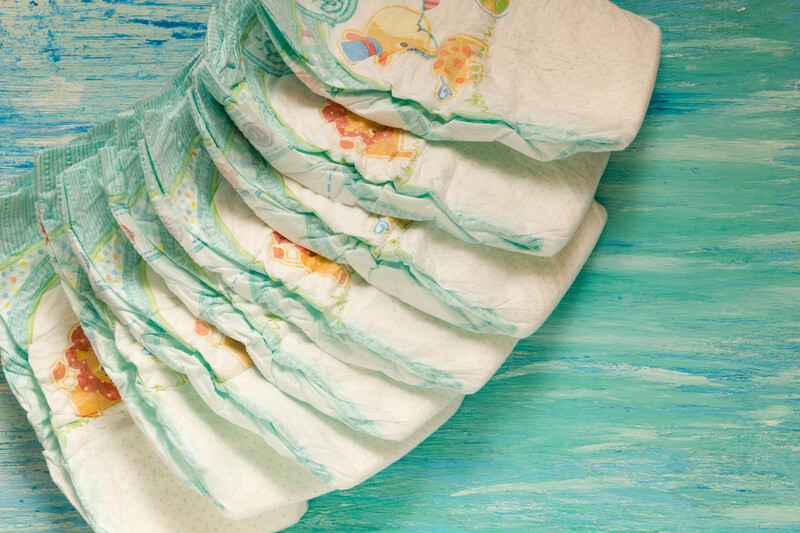Where to Recycle Your Cookware in Your Local Community: A Comprehensive Guide
As sustainability gains momentum in our daily lives, many are wondering: what should I do with my old pots, pans, and kitchen utensils? Whether you're replacing a scratched nonstick skillet or finally letting go of that battered casserole dish, disposing of cookware responsibly is important for both the environment and your local community. In this detailed article, we'll explore where to recycle your cookware locally, which types of cookware can (and can't) be recycled, and practical steps to ensure your kitchen cleanout doesn't end up in the landfill.

Why Recycle Your Cookware?
Kitchenware like pans, pots, and baking trays are often made from durable materials such as aluminum, stainless steel, copper, cast iron, and sometimes non-recyclable elements like ceramics, glass, or nonstick coatings. Recycling cookware helps to:
- Divert valuable metals from landfills
- Conserve natural resources and reduce mining
- Decrease environmental pollution
- Support local jobs in the recycling industry
Properly recycling your old kitchen items is a simple way to make a positive impact on the planet. Here's what you need to know about recycling your cookware in your community.
Understanding What Types of Cookware Can Be Recycled
Before you load up your trunk with old pans, it's essential to identify the material and condition of your cookware. Different materials require different recycling processes:
1. Metal Cookware (Aluminum, Stainless Steel, Cast Iron, Copper)
- Aluminum: Most aluminum cookware, including pots and pans, is recyclable. Make sure to remove any non-metal handles or lids.
- Stainless Steel: A popular option for pans and pots, stainless steel is in high demand at scrap metal yards.
- Cast Iron: These heavy-duty pieces are fully recyclable; scrap yards often accept them.
- Copper: Valuable and highly sought after, but many items are copper-plated; check before recycling.
2. Nonstick Cookware
Nonstick pans, especially those with Teflon or ceramic coatings, are not always accepted by standard curbside recycling programs due to the chemical coatings. However, some specialized recycling centers can process these items--always check with your local facility.
3. Ceramic or Glass Cookware
Unfortunately, most municipal recycling programs do not accept ceramic or glass cookware. The fusion of materials and high-temperature resistance makes these items difficult to break down. That said, some areas have specialized drop-off points for certain ceramics or Pyrex-type glass.
How to Prepare Your Cookware for Recycling
- Clean your cookware: Remove all food residue and wash thoroughly.
- Disassemble where possible: Detach any plastic, silicone, or wooden handles, as these are usually non-recyclable.
- Sort by type: Separate metals and other materials; this helps streamline the recycling process and increases the value.
- Check your local guidelines: Visit your municipal waste or recycling center's website to see their requirements.
Where to Recycle Cookware in Your Local Community
If you're on a mission to find where to recycle cookware near you, there are several convenient options to consider:
1. The Local Scrap Metal Yard
Metal cookware is best recycled through local scrap yards. These facilities accept pots and pans made from aluminum, copper, cast iron, or stainless steel, provided they are cleaned and stripped of non-metal parts. Most will pay you for your scrap metal by weight--an added incentive! To locate one:
- Search online for "scrap metal recycling near me"
- Call ahead to confirm which items they take
- Bring your cookware in separated by metal type for efficiency
2. Municipal Recycling Programs
Many cities and counties operate recycling centers or transfer stations where you can drop off scrap metal items. While standard curbside recycling might not accept cookware, your municipality may offer specific drop zones for bulky or metal goods. Steps to follow:
- Visit your city or county website to view recycling guidelines
- Find a community recycling event, sometimes held seasonally
- Contact the department of public works for clarification
- Ask about "hard-to-recycle" item events
3. Environmental Recycling Centers
Specialized recycling facilities and eco-centers often accept a wide variety of recyclable kitchenware, including nonstick cookware and ceramics. These may be run by local nonprofits or private companies partnered with municipalities.
4. Retailer Take-Back Programs
Many major kitchenware retailers and manufacturers have take-back or recycling programs. For example, some companies such as Sur La Table or Williams Sonoma periodically host recycling drives. Certain nonstick cookware brands like Calphalon, GreenPan, and T-fal have their own mail-in recycling initiatives, even offering discounts for turning in old pans.
- Check your retailer's website or call your local store
- Keep an eye on community bulletins for pop-up recycling events
- Participate in retailer-sponsored environmental programs
5. Donate in Working Condition
If your cookware is gently used and still functional, consider donation before recycling. Many local shelters, food pantries, churches, and thrift stores accept used kitchenware. This is a wonderful way to extend the life of your cookware and help someone in need.
- Contact organizations such as The Salvation Army, Habitat for Humanity, or Goodwill
- Reach out to local soup kitchens or community centers
- Post in local "Buy Nothing" or community Facebook groups
6. Community Tool Libraries and Sharing Programs
Some urban areas now offer tool libraries or kitchenware lending programs. If your pots and pans are still usable, consider donating them so others can borrow for community events or cooking classes.
7. Hazardous Waste Collection Events
For nonstick pans with chemical coatings, check if your municipality hosts hazardous waste collection days. These events often accept items that curbside services do not, ensuring they're handled responsibly.
What to Do If Recycling Facilities Are Limited
Living in a rural community or area with limited recycling options? Don't be discouraged. There are still creative ways to keep cookware out of the landfill:
- Contact local scrap collectors or metal haulers: They often make regular neighborhood rounds and may pick up your cookware.
- Mobile Recycling Events: Check county government websites for traveling recycling trucks or pop-up events.
- Upcycle Your Cookware: Turn pots and pans into planters, birdbaths, or decorative garden pieces. Cast iron pans can make rustic serving trays or display items.
The Power of Online Community Networks
Many online community groups devoted to sustainability and sharing can help you connect with someone in your area who wants to reuse or recycle your cookware. Try platforms such as:
- Nextdoor - Post your available cookware in the "Free" section
- Facebook Marketplace - List unwanted kitchenware for free or at a low cost
- Freecycle Network - Find dedicated groups for giving away unwanted items
Cookware Recycling FAQ
Can I Put Old Pots and Pans in My Curbside Recycling Bin?
In most cases, no. Municipal curbside programs are designed for beverage cans and food tins, not bulky items like pots and pans. However, you can usually drop these items off at scrap yards or municipal collection points. Always check your local program's website.
What About Cookware with Plastic or Wooden Handles?
Remove all non-metal parts before recycling a pot or pan. Handles made from plastic or wood can typically be detached with a screwdriver or small wrench. These parts, unfortunately, usually belong in the trash.
Is Nonstick Cookware Recyclable?
Some is, some isn't. Standard scrap yards often do not accept nonstick pans due to the Teflon or ceramic coatings, but specialized recycling programs or certain manufacturers may process them. When in doubt, ask your local recycling facility or contact the cookware brand for take-back options.
Is There a Difference Between Commercial and Home Cookware Recycling?
Yes. Commercial cookware is often larger and may require different drop-off procedures, especially if you're recycling multiple items at once. Check with local commercial waste processors for guidance.

Tips for a Greener Kitchen in the Future
- Invest in durable cookware: Choose high-quality pots and pans with long warranties
- Repair or re-season (for cast iron): Many pans can get a new life with a little care
- Choose fully recyclable materials: Opt for stainless steel, uncoated cast iron, or aluminum
- Buy from brands with recycling programs: Supporting companies with environmentally friendly initiatives helps drive positive change
Conclusion: Make a Difference By Recycling Your Cookware
Whether you're tackling a spring kitchen cleanout or simply upgrading your cookware, disposing of your old pots and pans responsibly is one small step toward a cleaner, greener community. Now that you know where to recycle cookware in your local area--from scrap metal yards and municipal drop-off points to retail programs and community donations--you can take action today.
Remember: Always separate your items by material, check local guidelines, and don't be afraid to get creative with upcycling or donation. Every pan recycled is a victory for the environment and your neighbors. If you're unsure, reach out to your local recycling coordinator for help.
Join the growing movement of eco-conscious cooks and make sure your old cookware has a new purpose--either recycled or reused--right in your community!
